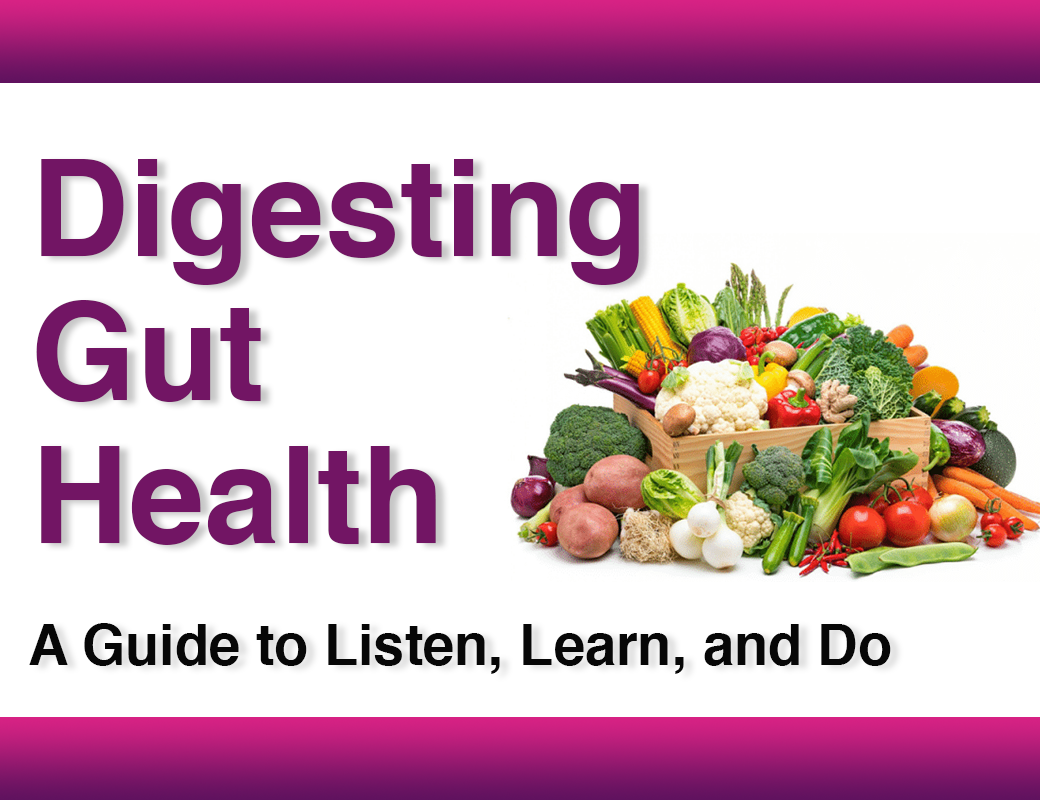
Digesting Gut Health: A Guide to Listen, Learn, and Do
The saying, “You are what you eat,” holds more truth than most people realize. Our gut health plays a significant role in our overall well-being, influencing everything from digestion and nutrient absorption to immune function and even mental health. In this comprehensive guide, we will delve into the intricacies of gut health, emphasizing the importance of a three-step approach: Listen, Learn, and Do. We’ll explore the science behind gut health, practical strategies, and how these principles can transform your life.
Listening to Your Gut
- Understanding Gut Health :- To truly grasp the essence of gut health, we must first appreciate its complexity. The human gut hosts a vast community of microorganisms collectively known as the gut microbiota. These microbes are instrumental in various bodily functions, such as breaking down food, absorbing nutrients, and maintaining a balanced immune system. In this section, we take a deep dive into the fascinating world of the gut microbiome and its profound influence on our health.
- The Gut-Brain Connection :- One lesser-known yet increasingly vital aspect of gut health is its intricate connection to the brain. The gut-brain axis is a bidirectional communication system between the central nervous system and the enteric nervous system in the gut. Here, we delve into how this connection profoundly impacts mood, stress levels, and overall mental health, illuminating the significance of “gut feelings.
Learning about Gut Health
- The Role of Diet:- Diet plays a crucial role in shaping the composition and activity of the gut microbiota, which consists of trillions of microorganisms, including bacteria, viruses, and fungi. A balanced and diverse diet can support a healthy gut in the following ways:
- ��Fiber: Consuming a diet rich in dietary fiber from fruits, vegetables, whole grains, and legumes provides substrate for beneficial bacteria in the gut. These bacteria ferment dietary fiber into short-chain fatty acids (SCFAs), such as butyrate, which have anti-inflammatory and health-promoting effects on the colon.
- ��Diversity: A diverse diet with a wide range of foods can help maintain a diverse gut microbiota, which is associated with better health. Eating a variety of foods introduces different types of bacteria into the gut.
- ��Preventing Inflammation: A diet high in processed foods, sugarthy fats can promote inflammation and negatively impact the gut microbiota. Inflammation can lead to gut dysbiosis, a condition characterized by an imbalance of gut bacteria..
- ��Probiotic Foods: Foods like yogurt, kefir, and fermented vegetables contain live beneficial bacteria (probiotics) that can contribute to a healthier gut microbiota. Probiotic-rich foods can help maintain a balanced gut ecosystem.
- Probiotics and Prebiotics:- Probiotics are live microorganisms that, when consumed in adequate amounts, confer health benefits to the host. They can be taken in supplement form or through certain foods. The most common probiotics are various strains of Lactobacillus and Bifidobacterium. Here’s how they impact gut health:
- ��Balancing Gut Microbiota: Probiotics can help restore a healthy balance of gut bacteria, especially after disruptions like antibiotics or illness.2. Digestive Health: Some probiotics can assist in the digestion and absorpnutrients and may alleviate symptoms of irritable bowel syndrome (IBS) and other digestive disorders.3. Immune Support: A significant portion of the immune system resides in the gut. Probiotics can help modulate immune responses and may reduce the risk of infections.4. Mood and Mental Health: There is emerging research suggesting a connection between gut health and mental health. Probiotics may play a role in managing conditions like anxiety and depression
Taking Action – The “Do” Phase
- Practical Steps for Gut Health:- Now that we’ve listened to the wisdom of our gut and learned about its intricacies, it’s time to take action. We provide a set of practical steps to enhance your gut health. These include making dietary adjustments, increasing fiber intake, and embracing fermented foods rich in probiotics. We offer guidance on how to incorporate these changes into your daily routine.
- Reducing Stress and Promoting Mental Health:- Mindfulness and Relaxation: Practice mindfulness meditation, deep breathing exercises, or progressive muscle relaxation to manage stress.
- Time Management: Organize your tasks and prioritize them to reduce the feeling of being overwhelmed.
- ��Physical Activity: Engage in regular physical activity, as exercise can reduce stress and improve mood.
- ��Adequate Sleep: Ensure you get 7-9 hours of quality sleep per night to rejuvenate your body and mind.
- ��Socialintain connections with friends and family for emotional support.
- Seeking Professional Guidance:- For individuals with specific gut health concerns or chronic conditions, consulting a healthcare professional or a registered dietitian is crucial. We underline the importance of seeking expert guidance to create a tailored gut health plan that suits your unique needs. A personalized approach can lead to more effective and sustainable results.
Conclusion
Digesting gut health is a journey that requires patience, curiosity, and unwavering commitment. By following the Listen, Learn, and Do approach outlined in this guide, you can embark on a path to better health, improved digestion, and enhanced overall well-being. Whether you’re making subtle dietary adjustments or embracing holistic lifestyle changes, your gut will thank you for the care and attention you provide. Remember, a healthier gut leads to a healthier you. It’s time to Listen, Learn, and Do for a brighter, healthier future. Your gut and your entire being will thank you.




